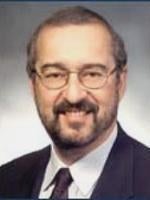The U.S. Court of Appeals for the Federal Circuit, finding that at least one of the infringement claims of a non-practicing patent owner was not baseless, reversed a ruling finding the entire case qualified as “exceptional” and overturned an attorneys’ fee award, pending an allocation between frivolous and non-frivolous claims. Highmark, Inc. v. Allcare Health Mgmt. Sys., Inc. Case No. 11-1219 (Fed. Cir., Aug. 7, 2012) (Dyk, J.) (Mayer, J., dissenting-in-part).
The patent in issue was directed to a method for managing health care systems including communications among and between doctors, patients, medical facilities and insurance providers—the objective being a way to determine whether a particular treatment should be approved for coverage. After Highmark filed for a declaratory judgment that the patent in issue was invalid and not enforceable, Allcare responded with counterclaims of infringement. Highmark prevailed on a summary judgment motion for non-infringement, which was affirmed on appeal. Highmark then sought a ruling that the case was exceptional (arguing that Allcare’s claims were frivolous) and sought a ruling that Allcare be ordered to pay its attorneys’ fees and expenses. The district court agreed and awarded the declaratory judgment plaintiff almost $5 million in attorneys’ fees under § 285. Allcare appealed.
On appeal, the Federal Circuit explained that under § 285, “sanctions may be imposed against the patentee only if two separate criteria are satisfied: (1) the litigation is brought in subjective bad faith, and (2) the litigation is objectively baseless.” The “objectively baseless” requirement “does not depend on the state of mind of the party at the time the action was commenced, but rather requires an objective assessment of the merits.” The Court continued, “[t]o be objectively baseless, the infringement allegations must be such that no reasonable litigant could reasonably expect success on the merits.”
The Federal Circuit rejected the patentee’s assertion that the objective prong is assessed only at the time legal claims are first filed. Rather, the Court explained that “the objective prong is a single backwards-looking inquiry into the reasonableness of the claims in light of the full record. […] Unlike the objective prong, which is a single retrospective look at the entire litigation, the subjective prong may suggest that a case initially brought in good faith may be continued in bad faith depending on developments during discovery and otherwise.” Further, over the dissent, the majority noted that the “objective prong … is a question of law based on underlying mixed questions of law and fact and is subject to de novo review” and is a determination that must be made by the court rather than by the jury. In contrast, the subjective prong must be established by clear and convincing evidence because “there is an assumption that an assertion of infringement of a duly granted patent is made in good faith.”
The majority noted “the objective reasonableness standard does not require fact finding. The question is simply whether the record established in the proceeding supports a reasonable argument as to facts and law.”
Here the Court concluded that as to one of the patent owner’s claims, the district court did not err in concluding the claim was frivolous and the case exceptional. However, as to another of the infringement claims, the majority concluded that “Allcare’s position was not objectively unreasonable.” Since there had been no apportionment of the award (in terms of the Allcare claims), the Federal Circuit ordered the case remanded for a calculation of the fees and expenses attributable to the frivolous claim.
The dissent would have applied a highly deferential standard of review and affirmed the exceptional case award in its entirety
Practice Note: House Bill H.R. 6245, introducing the “Saving High-Tech Innovators from Egregious Legal Disputes” (SHIELD) Act, was proposed on July 31, 2012 and, according to its sponsors, was aimed at deterring the class of litigants the sponsors call “patent trolls.” The bill proposes to amend 35 U.S.C. § 285 to include a new section 285A, which provides, in part: “[n]otwithstanding section 285, in an action disputing the validity or alleging the infringement of a computer hardware or software patent, upon making a determination that the party alleging the infringement of the patent did not have a reasonable likelihood of succeeding, the court may award the recovery of full costs to the prevailing party, including reasonable attorney’s fees, other than the United States.” As the bill defines “Computer hardware patent” and “Software patent” broadly, the apparent aim of the sponsors is to create a technology-specific “loser pays” rule by removing the subjective prong inquiry, one of the judicially-mandated legal hurdles required to establish entitlement (by prevailing accused infringers) to attorneys’ fees under § 285. As a consequence, the proposed SHIELD Act would remove the “fact finding” associated with the subjective prong.
In other words, under the bill, there would be no inquiry into whether “the lack of objective foundation for the claim ‘was either known or so obvious that it should have been known’ by the party asserting the claim.’” Thus, patent holders could face substantial financial risk when asserting patent claims.
In the technology area targeted by the bill, it is often the case that allegedly-infringing computer hardware and software is effectively a “black box.” Thus, even a patentee operating in good faith in anticipation of receiving further details of the accused instrumentalities through discovery could be subject to sanctions if it is later determined that the facts, as viewed at the end of the case, do not support infringement. The holding in Highmark that claimants are entitled to de novo review of the “objectively baseless” standard may also incentivize prevailing defendants to routinely appeal a sanctions motion if it is denied.



 />i
/>i
